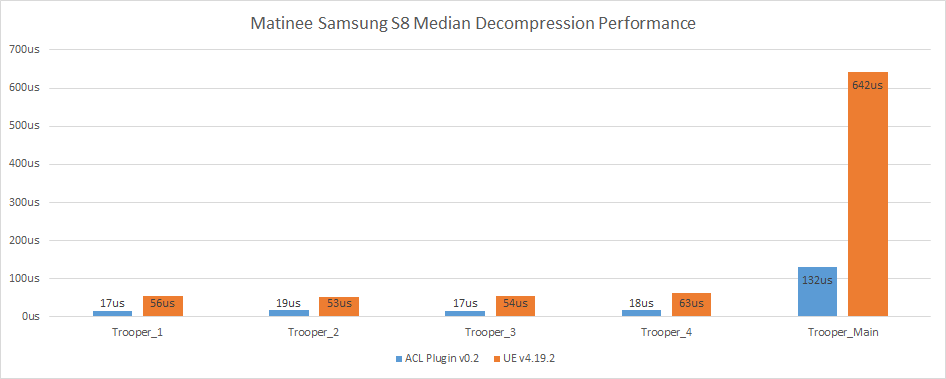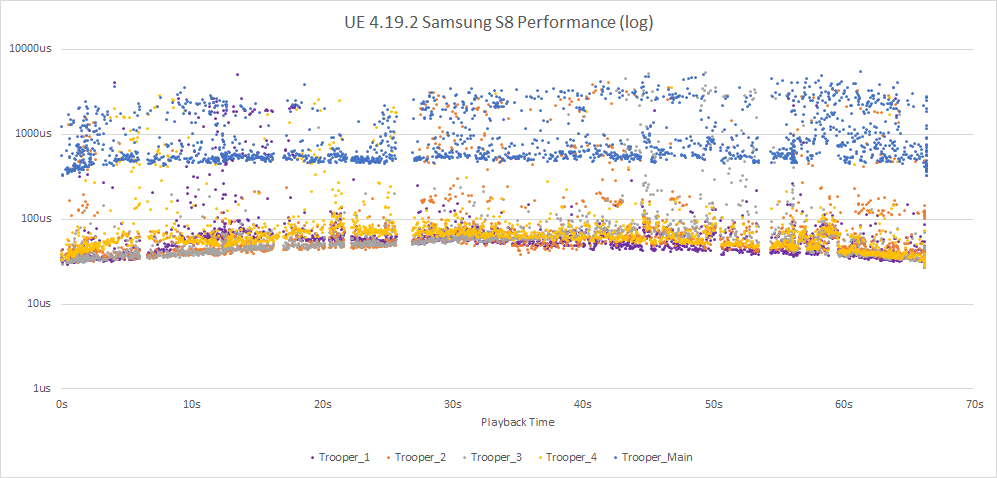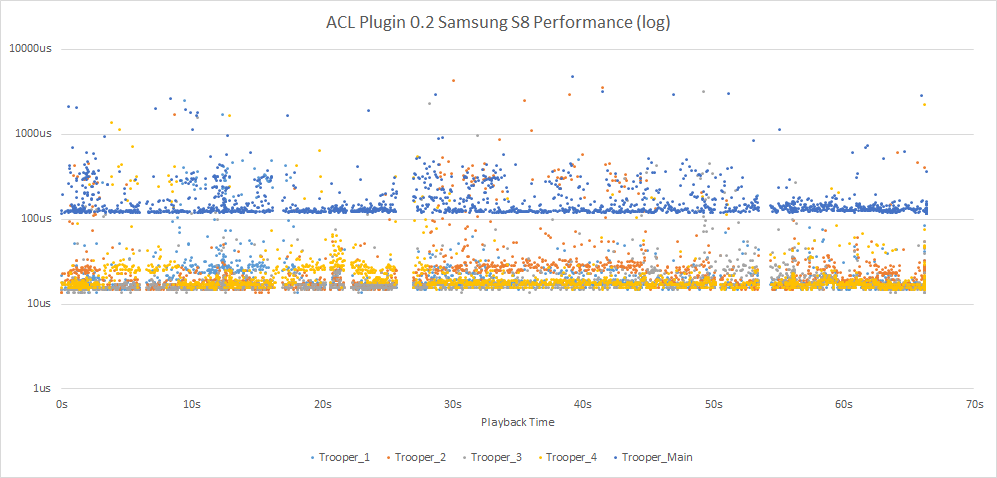Smaller, faster: ACL lets you cut your animation costs in half
08 Sep 2018I am excited to announce the open source Animation Compression Library has reached v1.1 along with an updated Unreal Engine 4 plugin v0.2.
ACL now beats Unreal Engine 4 on all the important metrics. The plugin is 1.7x smaller, 3x more accurate, 2.5x faster to compress, and up to 4.8x faster to decompress!
What’s new
The latest release focused on decompression performance. ACL v1.1 is about 30% faster than the previous version on every platform when decompressing a whole pose. Decompressing a single bone, a common operation in Unreal, is now about 3-4x faster. Also, ARM-based products will now use NEON SIMD acceleration when available.
The UE4 plugin was reworked to be more tightly integrated and is about twice as fast compared to the previous version.
ACL has now reached a point where I can confidently say that it is the best overall animation compression algorithm in the video games industry. While other techniques might beat ACL on some of these metrics, beating it simultaneously on speed, size, and accuracy will prove to be very challenging. In particular, unlike other algorithms that offer very fast decompression, ACL has no extra runtime memory cost beyond the compressed clip data.
New data!
One year ago, Epic generously agreed to let me use the Paragon animations for research purposes. This helped me find and fix bugs in Unreal Engine and ACL, and see how well both animation compression approaches perform in a real game. Paragon also allows each release to be rigorously tested against a large, relevant, and varied data set.
I am excited to announce that Epic is allowing me to use Fortnite to further my research as well! While Paragon will continue to play its role in tracking compression performance and regression testing, Fortnite will allow me to measure decompression performance in real world scenarios much more easily. Testing with Fortnite should highlight new ways ACL can be improved further.
What’s next
I am shifting my focus to add animation compression plugin support to UE4 during the next few months. If everything goes well, when UE 4.22 is released next year, I will be able to add the ACL plugin to the Unreal Engine Marketplace for everyone to use, for free.
Proper plugin support will remove overhead and help make ACL’s in-game decompression faster still.
Due to the rigorous testing and extensive statistics extraction every release now requires, I expect the release cycle to slow down. I will aim to perform non-bug fix releases about twice a year.
Compression performance overview
Here is a quick glance of how well it performs on the animations from Paragon:
| ACL Plugin v0.2.0 | UE v4.19.2 | |
|---|---|---|
| Compressed size | 226.09 MB | 392.97 MB |
| Compression ratio | 18.91 : 1 | 10.88 : 1 |
| Compression time | 6h 4m 18.21s | 15h 10m 23.56s |
| Bone Error 99th percentile | 0.0116 cm | 0.0328 cm |
| Samples below 0.01 cm error threshold | 98.85 % | 84.88 % |
The 99th percentile and the number of samples below the 0.01 cm error threshold are calculated by measuring the world-space error of every bone at every sample in each of the 6558 animation clips. To put this into perspective, over 99 % of the compressed data has an error lower than the width of a human hair. More details on how the error is measured can be found here.
Decompression performance overview
Decompression performance is currently tracked with the Matinee fight scene. The troopers have around 70 bones each while the main trooper has 541.

Much care was taken to ensure that ACL has consistent decompression performance. The following two images show the time taken to decompress a pose at every point of the Matinee fight scene which highlights how regular ACL is.


It also has consistent decompression performance regardless of the playback direction and it works on every modern platform making it a safe choice when using it as the default algorithm in your games.
Overall, ACL is ideal for games with large amounts of animations playing concurrently such as those with large crowds, MMOs, and e-sports as well as those that run on mobile or slower platforms.